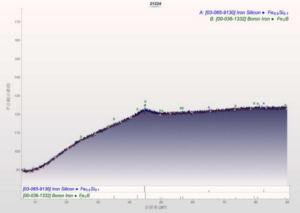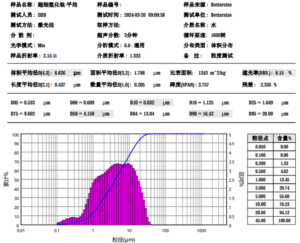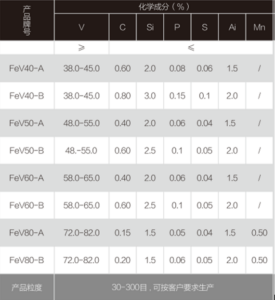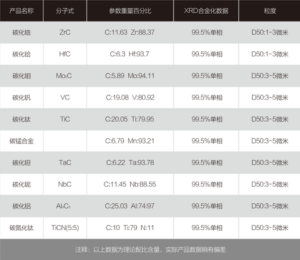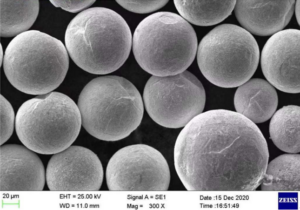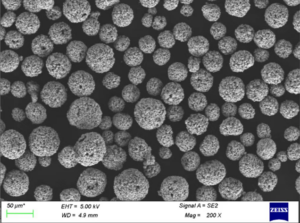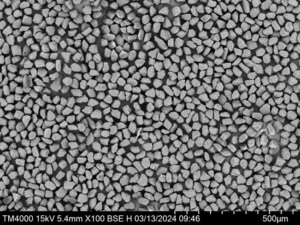Table of Contents
ToggleNickel powder is a fine granular form of nickel metal used in various industrial applications. This guide provides a comprehensive overview of nickel powder including different types, characteristics, applications, specifications, suppliers, installation, operation and maintenance.
Overview of Nickel Powder
Nickel powder is made up of small nickel particles, typically less than 100 microns in size. It has a gray color and metallic luster. Nickel powder is produced by various methods including carbonyl decomposition, electrolytic deposition, atomization and reduction of nickel salts.
Some key properties and uses of nickel powder include:
- High purity nickel content of 99% or more
- Uniform particle shape and size distribution
- Good thermal and electrical conductivity
- Used to manufacture nickel alloys and metal products
- Used for production of batteries, catalysts, electronics
- Used for diamond tool coating and 3D printing
- Provides corrosion resistance and wear resistance
Nickel powder has found wide applications across industries due to its versatile material properties. This guide covers different types, specifications, suppliers, uses, installation and maintenance of nickel powder in detail.
Types of Nickel Powder
There are several different classifications and grades of nickel powder based on production method, particle size, shape, purity levels, oxide content and additive elements.
Table 1: Types of Nickel Powder
| Type | Description | Characteristics |
|---|---|---|
| Carbonyl nickel powder | Produced by carbonyl decomposition process | High purity, spherical particles, good flowability |
| Electrolytic nickel powder | Produced by electrolytic deposition | Dendritic flake shape, high purity |
| Carbonyl iron powder | Made by reducing nickel salts | Irregular shape, lower purity |
| Composite nickel powder | Contains alloying elements like graphene, carbon nanotubes | Enhanced properties |
| Nano nickel powder | Particles less than 100 nm in size | High surface area, high reactivity |
The major types covered include:
- Carbonyl nickel powder – Made by carbonyl decomposition of nickel carbonyl, has spherical morphology and high purity of 99.9%.
- Electrolytic nickel powder – Produced by electrolytic deposition and has dendritic flake like particles with over 99% purity.
- Carbonyl iron powder – Made by reduction of nickel salts, has lower purity around 98% with irregular shaped particles.
- Composite nickel powder – Contains added alloying elements like copper, graphene, carbon nanotubes to modify properties.
- Nano nickel powder – Ultrafine particles under 100 nm in size having high surface area and enhanced reactivity.
The choice of nickel powder type depends on factors like required purity levels, particle characteristics, intended application and cost.
Characteristics of Nickel Powder
Nickel powder is evaluated based on various physical and chemical characteristics:
Table 2: Nickel Powder Characteristics
| Characteristic | Description | Typical Values |
|---|---|---|
| Particle shape | Morphology of individual particles (spherical, flakes, irregular) | Spherical, dendritic, irregular |
| Particle size | Diameter of powder particles | 1 – 100 microns |
| Particle size distribution | Range of particle sizes | D10, D50, D90 values |
| Apparent density | Powder mass per unit volume | 1 – 5 g/cc |
| Tap density | Maximum packing density | 30-80% of pure nickel density |
| Specific surface area | Surface area per unit mass | 0.5 – 10 m2/g |
| Purity | Nickel content in the powder | 99% to 99.9% purity |
| Oxide content | Oxygen bound to nickel | Less than 2% preferred |
| Crystallinity | Ratio of crystalline to amorphous nature | Determined by XRD |
| Flowability | Ability of particles to flow freely | Measured by Hall flowmeter |
| Compressibility | Ability of powder to be compressed | Determined from pressure-density curves |
Key characteristics like particle size, shape, purity and oxide levels determine the quality and performance of nickel powder. Manufacturers provide detailed technical datasheets for their products specifying these parameters.
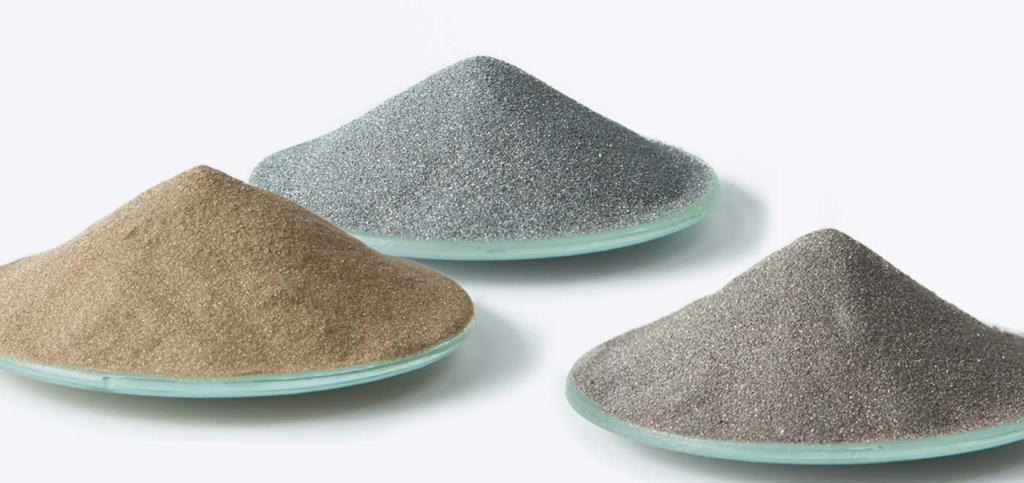
Applications and Uses of Nickel Powder
Nickel powder finds diverse applications across various industries owing to its unique properties like high temperature resistance, corrosion resistance, catalytic activity, etc.
Table 3: Applications of Nickel Powder
| Industry | Application | Purpose |
|---|---|---|
| Metallurgy | Alloy production | Impart strength, ductility, corrosion resistance |
| Manufacturing | Metal injection molding | Produce complex parts with good mechanical properties |
| Batteries | Battery electrodes | Provides high energy density as active material |
| Catalysts | Catalysts for hydrogenation, petrochemical processes | Provides high activity due to large surface area |
| Electronics | Conductive coatings, EMI shielding | Good electrical conductivity, solderability |
| Diamond tools | Diamond tool coating | Enhances wear resistance and thermal conductivity |
| Additive manufacturing | Binder jetting, laser powder bed fusion | Creates 3D printed metal parts |
| Coatings | Metallic coatings | Gives decorative finish, improves corrosion and wear resistance |
The major application areas of nickel powder include:
- Metallurgy – Used as alloying element to produce stainless steel, superalloys, etc. with enhanced properties.
- Manufacturing – Used in metal injection molding to produce complex net-shape components.
- Batteries – Used as active material in nickel metal hydride batteries to provide high energy density.
- Catalysts – Widely used as catalyst for hydrogenation, reforming, petrochemical processes.
- Electronics – Used in conductive coatings, EMI shielding, solders, contacts, RFID tags.
- Diamond tools – Coating on diamond abrasive tools improves thermal conductivity and wear resistance.
- 3D Printing – Binder jetting and laser powder bed fusion uses nickel powder to print metal components.
- Coatings – Decorative metallic finish, improves corrosion resistance of steel.
Nickel powder enables high performance applications in diverse sectors due to its specialized properties.
Specifications and Design Standards
Nickel powder products must meet certain specifications outlined by manufacturing standards to ensure quality and performance.
Table 4: Nickel Powder Specifications
| Parameter | Typical Specification | Test Method |
|---|---|---|
| Nickel content | Min 99% purity | ASTM B809 |
| Oxygen content | 0.5% max | Inert gas fusion |
| Apparent density | 2 – 5 g/cc | ASTM B212 |
| Tap density | Up to 80% of pure nickel | ASTM B527 |
| Particle size | 1 – 100 microns | Laser diffraction |
| Shape | Spherical, flakes, irregular | SEM imaging |
| Flow rate | 25 – 35 s/50g | Hall flowmeter |
| Compressibility | 20 – 30% at 1000 MPa | ASTM B331 |
| Surface area | 0.5 – 10 m2/g | BET method |
| Toxicity | Non-hazardous | Compliant to OSHA standards |
Key specifications prescribed by ASTM standards include purity, oxygen content, density, particle size distribution, flowability, compressibility and toxicity. Manufacturers must ensure their nickel powder products meet these requirements.
Nickel Powder Manufacturing Process
Nickel powder can be produced through various processes that determine its characteristics:
Table 5: Nickel Powder Manufacturing Processes
| Process | Methodology | Characteristics |
|---|---|---|
| Carbonyl process | Thermal decomposition of nickel carbonyl | High purity, spherical particles |
| Electrolysis | Electrolytic deposition from solution | Dendritic flake shape, pure powder |
| Atomization | Rapid solidification of molten nickel | Irregular particles with wide size range |
| Reduction | Reducing nickel salts using hydrogen | Lower purity powder with oxygen content |
- Carbonyl process – Nickel carbonyl gas is decomposed at 200°C to produce high purity spherical powder.
- Electrolysis – Aqueous electrolytic deposition using nickel anodes produces dendritic flakes.
- Atomization – Molten nickel sprayed by water or gas yields irregular particles cooling rapidly.
- Reduction – Nickel oxide reduced using hydrogen gives sponge-like powder with some oxygen.
Key process factors include temperature, gas flowrates, voltage, precursor chemistry, etc. which determine nickel powder characteristics.
Advanced techniques like plasma atomization and chemical vapor synthesis allow producing ultrafine and nano nickel powders.
Process Design Considerations
The nickel powder manufacturing process must be designed considering parameters like:
Table 6: Nickel Powder Process Design Factors
| Parameter | Typical Values | Impact on powder properties |
|---|---|---|
| Precursor | Nickel carbonyl, electrolyte, oxide | Determines purity levels |
| Temperature | 200 to 2000°C | Affects particle size and shape |
| Atmosphere | Vacuum, inert gas, hydrogen | Reduces oxygen content |
| Pressure | 1 to 20 bar | Improves particle sphericity |
| Quench medium | Air, water, oil | Controls cooling rate and shape |
| Deposition rate | 10 – 50 microns/min | Influences powder morphology |
| Agitation | Magnetic stirring, fluidization | Ensures uniformity |
Key factors include selection of suitable precursors, maintaining high process temperatures in controlled atmospheres, high quench rates for small particles, optimizing process parameters like pressure, voltage and flowrates.
Advanced process control and online monitoring systems allow close regulation of parameters for consistent nickel powder quality.
Nickel Powder Manufacturers
Some of the major global manufacturers of various grades of nickel powder include:
Table 7: Nickel Powder Suppliers
| Company | Location | Production Capacity | Products |
|---|---|---|---|
| Vale | Canada | 50,000 mt/year | Carbonyl, electrolytic, alloy grades |
| Jien Nickel | China | 20,000 mt/year | Nano, carbonyl, electrolytic |
| BASF | Germany | 15,000 mt/year | Carbonyl, catalyst grades |
| Linde | Germany | 10,000 mt/year | Carbonyl, spherical |
| Sandvik | Sweden | 5,000 mt/year | Alloy, composite, graphene grades |
| Ed Fagan | USA | 3,000 mt/year | Carbonyl, dendritic, reduced |
| American Elements | USA | 1,000 mt/year | Nano, high purity grades |
Some of the top nickel powder manufacturers globally include:
- Vale – Leading producer of carbonyl, electrolytic and alloy nickel powders.
- Jien Nickel – Major Chinese company manufacturing nano, carbonyl and electrolytic grades.
- BASF – German chemical company producing carbonyl and catalyst nickel powders.
- Linde – Renowned industrial gas company supplying carbonyl and spherical nickel.
- Sandvik – Swedish firm making specialty alloy, composite and graphene nickel.
- Ed Fagan – American company manufacturing various carbonyl, dendritic and reduced nickel.
- American Elements – USA based manufacturer of high purity nano nickel powders.
These companies have sizable production capacities catering to the worldwide nickel powder demand.
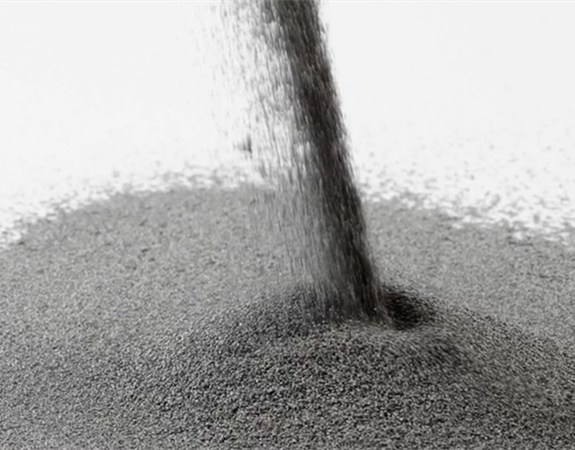
Installing and Operating Nickel Powder Systems
Proper installation, operation and maintenance procedures must be followed when handling nickel powder to ensure safety, performance and longevity.
Table 8: Nickel Powder System Installation Tips
| Parameter | Guidelines |
|---|---|
| Storage | Store in original containers in dry, inert atmosphere |
| Handling | Use spark-proof tools, minimize dust generation |
| Equipment | Choose compatible materials like nickel, stainless steel |
| Ventilation | Install dust collection system with filtration units |
| Grounding | Ground all equipment to prevent static charge buildup |
| Safety | Wear PPE – respirators, gloves, goggles, suits |
| Utilities | Ensure stable power, water, gas supply lines |
| Instrumentation | Install monitors for pressure, temperature, flows |
| Commissioning | Test all functions and calibrate instrumentation |
Table 9: Nickel Powder Operation Best Practices
| Activities | Procedure |
|---|---|
| Startup/Shutdown | Follow SOPs, use checklists for each step |
| Loading | Careful loading under inert atmosphere using dust collection |
| Processing | Maintain operating parameters within specified range |
| Monitoring | Continuous monitoring of temperature, pressure, flows |
| Safety | Use appropriate PPE suited for nickel powder hazards |
| Maintenance | Regular inspection and maintenance after shutdowns |
| Housekeeping | Keep work areas clean, remove powder spills promptly |
| Troubleshooting | Consult operating manuals for troubleshooting tips |
Table 10: Maintenance Activities for Nickel Powder Systems
| Task | Method | Frequency |
|---|---|---|
| Inspection | Check for component wear, leaks, corrosion | Monthly |
| Filter cleaning | Backwash dust filters, replace if needed | 3-6 months |
| Equipment cleaning | Clean vessels, pipes of residual powder | Yearly |
| Calibration | Calibrate critical instruments like pressure sensors | Yearly |
| Overhaul | Replace worn components like seals, gaskets | 2-3 years |
| Process audit | Review process data, identify improvements | Yearly |
| Safety drills | Conduct mock emergency drills | Quarterly |
| Staff training | Refresh equipment operating and safety procedures | Yearly |
Following standard operating procedures for startup, shutdown, loading, processing, monitoring, maintenance and troubleshooting ensures smooth functioning of nickel powder handling systems with minimal downtime.
Regular maintenance like cleaning filters, instruments calibration, overhauling components prevents ageing and prolongs equipment life.
Choosing a Nickel Powder Supplier
Selection of a suitable nickel powder supplier is important to get the right quality product for the application:
Table 11: Nickel Powder Supplier Selection Criteria
| Parameter | Preferred Criteria |
|---|---|
| Reputation | Well known company with years of experience |
| Location | Close proximity ensures quick product delivery |
| Manufacturing | Uses approved process with quality control |
| Certifications | ISO certified for quality management system |
| Testing | Provides test reports for every batch |
| Varieties | Offers multiple nickel powder varieties |
| Customization | Allows custom particle size, shape if needed |
| Order size | Has capability to deliver in small and bulk quantities |
| Support | Provides technical assistance and troubleshooting |
| Pricing | Reasonable pricing with discounts for bulk orders |
Key considerations for choosing a nickel powder supplier include:
- Reputation – Established company with proven track record
- Location – Close proximity for quick delivery
- Manufacturing – Uses standard approved production process
- Certifications – Has ISO 9001 certification for example
- Testing – Provides detailed test reports for each batch
- Varieties – Offers different nickel powder types
- Customization – Allows tailoring particle size or shape if required
- Order size – Capability to deliver small lab-scale to bulk orders
- Support – Provides technical assistance to customers
- Pricing – Cost-effective pricing, discounts on bulk purchases
Careful supplier evaluation and selection ensures obtaining the optimal nickel powder type for the specific application need.
Pros and Cons of Nickel Powder
Nickel powder offers several benefits but also has some limitations:
Table 12: Advantages and Disadvantages of Nickel Powder
| Pros | Cons |
|---|---|
| Good corrosion resistance | Exposure can cause nickel allergies |
| High temperature resistance | Toxic oxides form at high temperature |
| Excellent thermal conductivity | Requires careful handling to avoid fire hazard |
| High purity levels achievable | Oxidation and contamination can occur during storage |
| Wide range of types and sizes | Hard to fully compress into dense components |
| Versatile material properties | Relatively expensive compared to iron or copper powders |
| Used in many critical applications | Recycling nickel powder is difficult |
Advantages
- Excellent corrosion and high temperature resistance
- Good thermal and electrical conductivity
- High purity levels from 99% to 99.9% nickel
- Many varieties available with different particle characteristics
- Used in high performance applications like batteries, alloys, catalysts
- Provides wear resistance, ductility, hardness in alloys
Disadvantages
- Nickel allergies can occur with prolonged skin exposure
- Toxic nickel oxides form at very high temperatures
- Fire hazards due to fine particles necessitate careful handling
- Prone to oxidation and contamination during storage
- Relatively lower compressibility into dense components
- More expensive compared to iron or copper powder
- Difficult to recycle after usage into new powder
Understanding the key benefits and limitations helps select the right grade for specific applications. Proper handling and storage precautions must be taken due to hazards like fire risks, inhalation, etc.
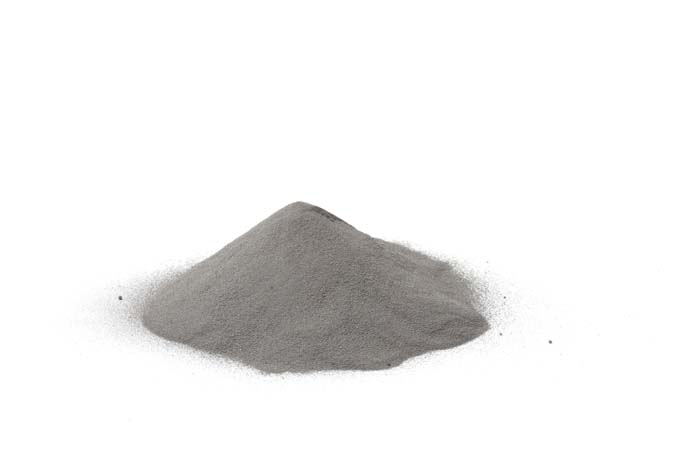
Nickel Powder Pricing
Nickel powder price depends on several factors like:
Table 13: Nickel Powder Price Range
| Type | Price Range |
|---|---|
| Carbonyl nickel | $50 – $100 per kg |
| Electrolytic nickel | $30 – $60 per kg |
| Iron nickel | $15 – $30 per kg |
| Nano nickel | $200 – $2000 per kg |
- Purity levels (99% – 99.9%)
- Particle shape (spherical, flake, irregular)
- Particle size distribution
- Surface area
- Production process (carbonyl, electrolytic)
- Order quantity
- Additional alloying elements or coatings
- Carbonyl nickel powder is more expensive due to high purity and spherical shape, costing $50 – $100 per kg.
- Electrolytic nickel with dendritic flake shape costs moderately at $30 – $60 per kg.
- Reduced iron nickel has lower purity around 98% and cheaper at $15 – $30 per kg.
- Nano-sized nickel powders less than 100 nm can cost between $200 – $2000 per kg owing to complex manufacturing.
- Prices are highest for ultra high purity 99.99%, spherical nickel powders used in critical applications.
- Flake shaped dendritic particles are cheaper than spherical morphologies.
- Smaller nano-sized particles have much higher cost than micron-sized powders.
- Buying in bulk quantities can offer 15-20% cost reduction compared to small lab-scale orders.
- Alloy grades with additives like chromium, copper increase pricing over pure nickel powder.
- Graphene or carbide coated nickel powders are more expensive than uncoated.
- Packaging in vacuum sealed containers also adds to cost over ordinary packing.
Updated pricing and discounts should be obtained from nickel powder suppliers directly based on purchase volumes and required grade specifications.
Conclusion
Nickel powder is a versatile material with applications across diverse sectors owing to properties like corrosion resistance, thermal/electrical conductivity, catalytic activity and alloying ability. It is commercially produced in various particle sizes and morphologies using processes like carbonyl decomposition, electrolysis, atomization and reduction. Nickel powder is used for manufacturing alloys, metal products, batteries, electronics, coatings and 3D printing. Key selection criteria are based on purity levels, particle characteristics, availability, cost and application requirements. Leading global suppliers provide high quality nickel powder tailored to customer specifications along with technical expertise. Following safety precautions during handling and using appropriate installation, operation and maintenance procedures ensures optimal performance in industrial systems.
Nickel Powder FAQs
Q: How is nickel powder made?
A: Key manufacturing processes include carbonyl decomposition, electrolysis, atomization and reduction which produce different nickel powder types.
Q: What are the different varieties of nickel powder?
A: Major types include carbonyl, electrolytic, iron, nano, alloy, composite, graphene nickel powder with varying particle shape, size, purity levels.
Q: What is carbonyl nickel powder?
A: It is produced by decomposition of nickel carbonyl gas and has high purity of 99.9% with spherical particle morphology.
Q: What is the typical particle size range?
A: Nickel powder particles are usually between 1-100 microns in size, while nano-powders are under 100 nm.
Q: How to choose the right nickel powder type?
A: Selection depends on required purity, particle shape, proposed application, performance needs and budget constraints.
Q: Where is nickel powder used?
A: Major applications are in alloy production, metal injection molding, batteries, catalysts, coatings, 3D printing, etc.
Q: How expensive is nickel powder?
A: Price ranges from $15/kg for irregular iron nickel up to $2000/kg for ultrafine nano nickel powder based on characteristics.
Q: What precautions are needed when handling nickel powder?
A: Use PPE, ensure proper grounding to avoid fire hazards, prevent contact with skin to avoid nickel allergies.
Q: How to select a good nickel powder supplier?
A: Choose reputed suppliers offering high purity products validated by test reports, good customer service and reasonable pricing.
